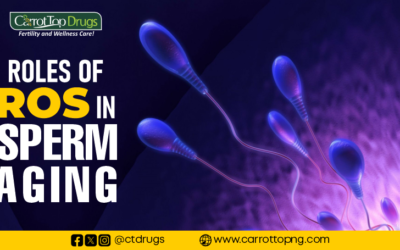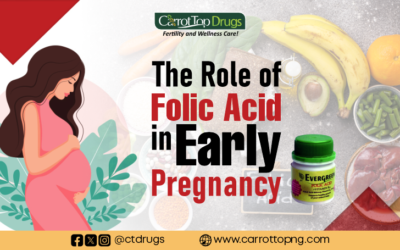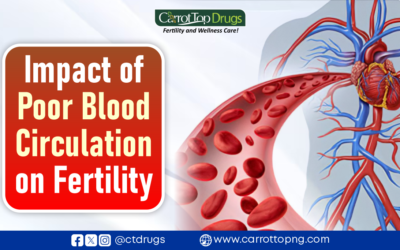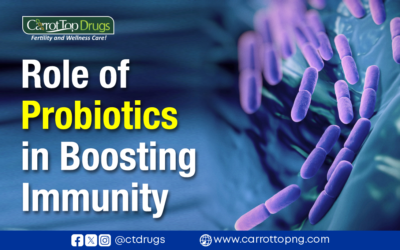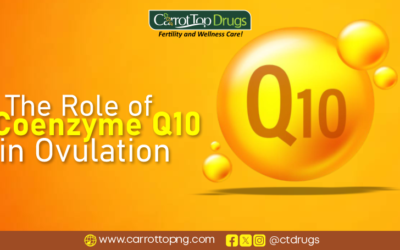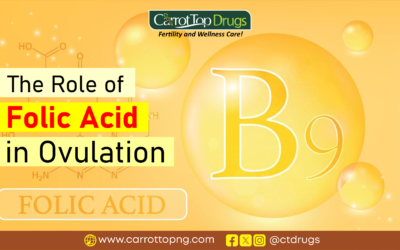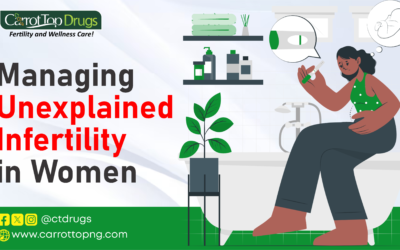Introduction
Struggling to conceive is not a comfortable thing for any couple to go through. It can be very challenging especially if they do not have a good support structure around them. Now, for many couples trying to conceive, there may be the need to spice things up. In other words, in addition to the traditional way of treating infertility, the couple could also decide to make a few changes to their lifestyle. For the sake of this article, the change we are going to discuss extensively is using fertility-friendly vaginal lubricants.
In this article, you will know in detail what we mean by fertility-friendly vaginal lubricants. You would also know its components and how to make the best choice. This would help improve the quality of sex as well as improve the chances of getting pregnant.
Prevalence of The Use of Vaginal Lubricant
A study by Debby Herbenick 1, Michael Reece, Vanessa Schick, Stephanie A Sanders, J Dennis Fortenberry has revealed that about 65.5% of the women who participated in the study, reported never having used a vaginal lubricant and 20% had used a lubricant within the past 30 days. Across age groups, lubricants were most commonly used during intercourse (58.3% of women) or partnered sexual play (49.6%).
Another study by Anne Z Steiner , D Leann Long, Catherine Tanner, Amy H Herring revealed that approximately 43% of women reported that they occasionally (29%) or frequently (14%) used lube while trying to conceive.
What these studies reveal is that both women trying to conceive and those who are not trying to conceive use vaginal lubricants.
What are fertility-friendly vaginal lubricants?
Fertility-friendly vaginal lubricants are vaginal lubricants that are specially formulated to provide optimal conditions for conception while also making intercourse more comfortable and enjoyable. This is a very important combination. The reason for this is that many couples have made sex a routine. It has become a boring and stressful activity. This reduces the chances of conceiving. The difference between fertility-friendly vaginal lubricants and traditional ones is that they are devoid of any spermicidal ingredient.
What Do Spermicidal Ingredients Do?
Spermicides are ingredients that affect the health of sperm cells. Hence, they kill sperm cells. When a vaginal lubricant has a spermicidal ingredient, it drastically depletes any chance of fertilization.
These lubricants are different from traditional lubricants because they are free of ingredients that can harm or inhibit sperm.
With couples trying to conceive, the quality of the cervical mucus and the timing of intercourse are essential factors. Fertility-friendly lubricants help to support these factors by providing a pH-balanced environment that mimics the natural fluids of the vagina. This in turn helps to promote the survival and motility of sperm.
Using a fertility-friendly vaginal lubricant can also help couples who experience vaginal dryness due to hormonal changes, certain medications, or other factors. Dryness can make intercourse uncomfortable and even painful, which can decrease the frequency of intercourse and reduce the chances of conception.
With a fertility-friendly lubricant, couples can enjoy intimacy without worrying about the negative effects of traditional lubricants on their fertility. These lubricants are safe and effective for couples who are trying to conceive naturally or through assisted reproductive technologies.
Why Do Women Use Vaginal Lubricants?
Before we examine why fertility-friendly vaginal lubricant is important, it is necessary to know why women use vaginal lubricants in the first place. People use vaginal lubricants for a variety of reasons, including:
1. To enhance sexual pleasure:
Vaginal lubricants can help to increase pleasure and reduce discomfort during sexual activity by providing additional lubrication. This is particularly useful for people who experience vaginal dryness or discomfort during intercourse.
2. To ease vaginal dryness:
Vaginal dryness can be caused by a variety of factors, including hormonal changes, medications, and medical conditions. Using a vaginal lubricant can help to ease discomfort and prevent irritation or pain during daily activities or sexual activity.
3. To reduce friction:
Friction can cause irritation, discomfort, and even injury in the vaginal area. Using a lubricant can help to reduce friction and prevent these issues.
4. To make sex safer:
Using a lubricant during sex can help to reduce the risk of condom breakage or tearing. It can also make anal sex safer by reducing the risk of injury.
5. To aid in fertility:
For couples trying to conceive, using a vaginal lubricant can help to increase the likelihood of sperm reaching the egg. Some vaginal lubricants are specifically designed for use during fertility treatments and can help to improve the chances of success.
6. To ease menopausal symptoms:
As estrogen levels decrease during menopause, many women experience vaginal dryness and discomfort. Using a lubricant can help to alleviate these symptoms and improve sexual satisfaction.
7. To experiment with different types of sexual activity:
Some people use vaginal lubricants to try new sexual activities that may require additional lubrication, such as anal sex or sex toys.
8. To soothe irritation and itching:
Some vaginal lubricants contain ingredients like aloe vera or vitamin E, which can help to soothe and heal irritated or itchy skin in the vaginal area.
9. To enhance intimacy:
Using a lubricant during sex can be a form of intimacy and communication between partners, and can help to create a more enjoyable and pleasurable experience for both parties.
It’s important to note that not all lubricants are created equal, and some may contain ingredients that can cause irritation or allergic reactions. It’s always a good idea to choose a high-quality, water-based lubricant that is free of harmful chemicals and additives. If you experience any discomfort or irritation while using a lubricant, discontinue use and consult with your healthcare provider.
Why are fertility-friendly vaginal lubricants important?
During sexual intercourse, especially during foreplay, the female vagina secretes mucus. This mucus is supposed to reduce friction on the surface area of vaginal walls when it is penetrated by the man’s penis. This reduces pain and makes the activity pleasurable.
Without this vaginal mucus, there would be pain and abrasion during penetration. This reduces the desire to repeat the activity and reduces the chances of conception.
As a woman increases in age, or due to some medical conditions, the vaginal mucus reduces. Therefore, it is necessary for the couple to help themselves by getting a vaginal lubricant.
This vaginal lubricant is designed to replace the function of the vaginal mucus. However, traditional vaginal lubricants may have some spermicidal ingredients. As stated above, this reduces the chances of conception. This is the reason for fertility-friendly vaginal lubricant.
Enhance Chances of Conception
Fertility-friendly vaginal lubricants are important because they provide a safe and effective way for couples to enhance their chances of conception. Unlike traditional lubricants, which can contain harmful ingredients that can damage sperm, fertility-friendly lubricants are formulated to support sperm function and viability.
Ideally, vaginal mucus has some properties like it is slightly acidic to keep the vaginal free from external microbes. These fertility-friendly vaginal lubricants provide an environment in which sperm cells can strive. This is because, they have been made to mimic the activity and properties of a healthy vaginal mucus. They provide a pH-balanced and isotonic solution that is compatible with the natural fluids of the vagina.
Can Be Used With Assisted Reproductive Technologies
Fertility-friendly lubricants can also be helpful for couples who are undergoing assisted reproductive technologies, such as in vitro fertilization (IVF) or intrauterine insemination (IUI). These procedures require a high level of sperm motility and viability, and the use of traditional lubricants can significantly decrease the chances of success.
Can Be Used To Manage Vaginal Dryness
Furthermore, fertility-friendly lubricants can help to address vaginal dryness. This condition is a common one. It can make sexual intercourse uncomfortable or even painful. Due to the fact that with vaginal dryness, there is more friction during sex, the frequency of intercourse is reduced. This affects by lowering the chances of conception. With a fertility-friendly lubricant, couples can enjoy a comfortable and pleasurable sexual experience while also increasing their chances of conception.
In summary, fertility-friendly vaginal lubricants are important because they provide a safe and effective way for couples to enhance their chances of conception while also improving the comfort and pleasure of sexual intercourse.
Traditional Vaginal Lubricant Vs Fertility-Friendly Vaginal Lubricant
Knowledge is a very important necessity for couples trying to conceive. The reason for this is that the result and the quality of life depend on knowledge. There are different vaginal lubricants. Generally, vaginal lubricants are used simply to address vaginal dryness.
Vaginal dryness is a condition found in women characterized by the reduction in the secretion of vaginal fluids. This really affects women directly and men indirectly. For women, sexual intercourse becomes painful and less pleasurable. Men, on the other hand, experience the result of what happens to their partners.
There are different types of vaginal lubricants depending on their purpose.
Contraceptive Gels: These particular lubricants are spermicidal in nature. As explained above, they have some ingredients that adversely affect sperm cells.
Traditional Vaginal Lubricant: These vaginal lubricants have a focus. This focus is to just lubricate the vaginal walls. They do not necessarily add any fertility-friendly benefit to the couple.
Fertility-Friendly Vaginal Lubricants: These vaginal lubricants contain a spectrum of vaginal lubricants that have a common feature. Not only do they just lubricate the vaginal walls, but they also have some ingredients that help to improve fertility. We would discuss some of those ingredients as we go on.
In this article, we hope to show couples trying to conceive that it is not enough to get a traditional vaginal lubricant that only lubricates the walls. But, to also get the vaginal lubricants that add the edge of improving fertility. That is what fertility-friendly vaginal lubricant can add.
How to choose the best fertility-friendly vaginal lubricant?
Now that we have clearly seen the differences between traditional and fertility-friendly vaginal lubricants, we can now examine the parameters in choosing the best fertility-friendly vaginal lubricant. Choosing the best fertility-friendly vaginal lubricant is important for couples who are trying to conceive. With so many options available in the market, it can be overwhelming to make a choice. Here are some factors to consider when selecting a fertility-friendly lubricant:
Properties to look for in fertility-friendly vaginal lubricants:
pH-Balanced:
The pH of the vagina plays a critical role in maintaining a healthy environment for sperm. A fertility-friendly lubricant should have a pH between 7.2 and 8, which is similar to the pH of cervical mucus during ovulation. This pH range promotes sperm survival and mobility.
Isotonicity:
Isotonicity refers to the concentration of electrolytes in a solution, which affects the osmotic pressure. A fertility-friendly lubricant should be isotonic, meaning it has a similar electrolyte concentration as cervical mucus. This helps to prevent damage to the sperm membrane and enhances their motility.
Hypo-osmotic:
A hypo-osmotic lubricant has a lower concentration of dissolved particles than body fluids. This is important because if a lubricant has a higher osmolality than cervical mucus, it can cause sperm to lose their motility and viability.
Free of harmful chemicals:
Some lubricants contain chemicals that can harm sperm, such as parabens, glycerin, and petroleum-based products. A fertility-friendly lubricant should be free of such chemicals and should not interfere with the sperm’s function.
Contain ion-releasing agents:
Ion-releasing agents like potassium and sodium promote sperm motility and prevent agglutination. They also mimic the natural electrolyte composition of cervical mucus.
Provide optimal viscosity:
The viscosity of a lubricant affects its ability to facilitate sperm transport. A fertility-friendly lubricant should have a viscosity similar to that of cervical mucus, which is thin and watery during ovulation.
Antioxidants:
Antioxidants like vitamin E and ubiquinone can help to reduce oxidative stress, which can be harmful to sperm. Including these ingredients in a fertility-friendly lubricant can help to protect and enhance sperm function.
In conclusion, a fertility-friendly vaginal lubricant should contain ingredients that mimic the natural cervical mucus and provide an optimal environment for sperm transport, motility, and survival. It should be free of harmful chemicals and have the appropriate pH, osmolality, and viscosity. Including ion-releasing agents and antioxidants can further enhance its fertility-friendly properties.
Ingredients to avoid in fertility-friendly vaginal lubricants:
When choosing a vaginal lubricant for use during intercourse when trying to conceive, it’s essential to ensure that the ingredients in the lubricant are sperm-friendly and won’t hinder conception. Here are some components or ingredients that should not be found in vaginal lubricants that could be detrimental to conception:
Glycerin:
Glycerin is a common ingredient in many lubricants, but it can cause irritation and kill sperm. Avoid lubricants that contain glycerin.
Nonoxynol-9:
Nonoxynol-9 is a spermicide that can kill sperm. While it can be used as a contraceptive, it is not recommended for use when trying to conceive.
Petroleum-based ingredients:
Petroleum-based ingredients like petroleum jelly, mineral oil, and baby oil can damage latex condoms and prevent conception.
Fragrances and flavors:
Lubricants that contain fragrances or flavors can cause irritation and disrupt the pH balance of the vagina, making it difficult for sperm to survive.
Parabens:
Parabens are preservatives commonly used in personal care products, including lubricants. However, they can interfere with hormone levels and potentially harm reproductive health.
Silicone:
Silicone lubricants can be harmful to sperm because they create a barrier that can prevent sperm from reaching the egg.
pH-altering agents:
Lubricants that alter the pH balance of the vagina can harm sperm and hinder conception.
Chlorhexidine:
Chlorhexidine is an antibacterial agent that can be found in some vaginal lubricants. While it is effective at killing bacteria, it can also be harmful to sperm.
Propylene Glycol:
Propylene glycol is a synthetic chemical that is commonly found in personal care products, including lubricants. It can irritate the skin and potentially harm sperm.
Phenoxyethanol:
Phenoxyethanol is a preservative that is commonly used in personal care products. While it is generally considered safe, there is limited research on its effects on fertility.
Alcohol:
Alcohol can be drying to the vaginal tissues and can also kill sperm.
Baking soda:
Some women use baking soda as a DIY lubricant, but it can be harmful to sperm and disrupt the natural pH balance of the vagina.
It is also important to choose a lubricant that is compatible with any fertility treatment you may be undergoing, such as IVF or IUI. Consult with your doctor or fertility specialist to ensure that the lubricant you choose is safe to use with any medications or procedures you may be receiving.
Our Recommendation
Our Pre-Seed Fertility-Friendly Vaginal Lubricant is a high-quality lubricant that mimics fertile cervical fluids to support sperm on their journey. Unlike most other lubricants, Pre-Seed Fertility-Friendly Lubricant is pH-balanced and isotonic, so sperm can swim freely.
Pre-seed has a pH of 7.29 which creates an environment where sperm cells can thrive.
It has the following components:
- Water
- Hydroxyethylcellulose
- Pluronic acid
- Sodium Chloride
- Arabinogalactan
- Sodium Phosphate
- Potassium Phosphate
- Carbomer and
- Sodium Hydroxide
These components are non-spermicidal.
Why is Preseed Better?
When compared to other fertility-friendly vaginal lubricants, it had a higher sperm vitality. Sperm vitality following exposure to Pre-seed was significantly higher than all other lubricants at over 90%. We can conclude that it has very little or no adverse effect on sperm.
Another edge that it has is that upon exposure of sperm to Preseed resulted in a significantly higher percentage of spermatozoa with progressive motility (over 85 %) compared with all other lubricants.
The proportion of DNA fragmentation of sperm following exposure to different lubricants did not differ significantly. These are factors that make Preseed Fertility-Friendly Vaginal Lubricant the best choice available.
In addition to its effectiveness, it is cost-effective.
Frequently Asked Questions
Q: What is a traditional vaginal lubricant?
A: A traditional vaginal lubricant is a product that is designed to reduce friction during sexual activity. These lubricants are often made with synthetic ingredients and may contain fragrances or other additives.
Q: What is a fertility-friendly vaginal lubricant?
A: A fertility-friendly vaginal lubricant is a product that is specifically designed to support sperm survival and motility. These lubricants are typically made with natural ingredients and are free from potentially harmful chemicals that could interfere with conception.
Q: Why should I choose a fertility-friendly vaginal lubricant when trying to conceive?
A: When trying to conceive, it’s important to use a lubricant that won’t harm sperm or interfere with conception. Fertility-friendly vaginal lubricants are specifically designed to support sperm health and survival, making them a better choice than traditional lubricants.
Q: What are some common ingredients in fertility-friendly vaginal lubricants?
A: Fertility-friendly vaginal lubricants are typically made with natural ingredients like aloe vera, vitamin E, and other plant-based extracts. These ingredients help to support the natural pH balance of the vagina and provide the optimal environment for sperm survival.
Q: Are fertility-friendly vaginal lubricants more expensive than traditional lubricants?
A: Fertility-friendly vaginal lubricants may be slightly more expensive than traditional lubricants due to the use of natural and organic ingredients. However, the cost difference is usually minimal and is worth it for couples who are trying to conceive.
Q: Can I use a fertility-friendly vaginal lubricant even if I’m not trying to conceive?
A: Yes, fertility-friendly vaginal lubricants are safe to use even if you’re not trying to conceive. These lubricants are designed to support the natural pH balance of the vagina and can provide a more natural and comfortable sexual experience.
Conclusion
All in all, we have thoroughly examined what fertility-friendly vaginal lubricant is and why it is important to use it. As a couple trying to conceive, it is necessary to get the best quality. this is why we recommend that you get Preseed Fertility-Friendly Vaginal Lubricant. In the next article, we would examine how to use this vaginal lubricant.



